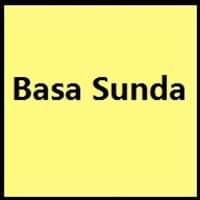Maori and Sundanese
Countries
New Zealand
West Java
National Language
New Zealand
Indonesia
Second Language
Not spoken in any of the countries
Not spoken in any of the countries
Speaking Continents
Australia, Oceania
Asia
Minority Language
Not spoken in any of the countries
Not spoken in any of the countries
Regulated By
Māori Language Commission
Not Available
Interesting Facts
- "E korao no New Zealand" was the first printed Maori book in 1815.
- The first newspaper in the Maori language was published in year 1842.
- The Sundanese language is second most widely spoken regional language in Indonesia.
Similar To
Tahitian Language
Madurese and Malay Languages
Derived From
Not Available
Not Available
Alphabets in
Maori-Alphabets.jpg#200
Sundanese-Alphabets.jpg#200
Scripts
Latin
Latin, Sundanese
Writing Direction
Not Available
Left-To-Right, Horizontal
Language Levels
Not Available
Time Taken to Learn
Not Available
Thank You
Mauruuru koutou
Nuhun
How Are You?
E pēhea ana koe ?
Kumaha kabarna?
Good Night
Night pai
Wilujeng kulem
Good Evening
pai ahiahi
Wilujeng wengi
Good Afternoon
Afternoon pai
Wilujeng siang
Good Morning
Morning pai
Wilujeng énjing
Bye
poroporoaki
Wilujeng angkat
I Love You
Aroha ahau ki a koe
Abdi bogoh ka anjeun
Excuse Me
tukua ahau
Punten
Dialect 1
South Island Māori
Western dialect
Where They Speak
New Zealand
Banten
Dialect 2
Western North Island Maori
Northern dialect
Where They Speak
New Zealand
Bogor
Dialect 3
Eastern North Island Maori
Priangan dialect
Where They Speak
New Zealand
Bandung
Speaking Population
Not Available
Native Name
te Reo Māori
Not Available
Alternative Names
New Zealand Maori
Priangan, Sunda
French Name
maori
soundanais
German Name
Maori-Sprache
Sundanesisch
Pronunciation
Not Available
Not Available
Ethnicity
Māori people
Sundanese, Bantenese, Cirebonese, Badui
Origin
1814
5th century AD
Language Family
Austronesian Family
Austronesian Family
Subgroup
Polynesian
Indonesian
Branch
Not Available
Not Available
Early Forms
No early forms
No early forms
Standard Forms
Maori
Sundanese
Signed Forms
Not Available
Not Available
Scope
Individual
Individual
ISO 639 6
Not Available
Not Available
Glottocode
maor1246
sund1251
Linguasphere
No data Available
No data available
Language Type
Living
Living
Language Linguistic Typology
Not Available
Subject-Verb-Object
Language Morphological Typology
Not Available
Not Available
All Maori and Sundanese Dialects
Most languages have dialects where each dialect differ from other dialect with respect to grammar and vocabulary. Here you will get to know all Maori and Sundanese dialects. Various dialects of Maori and Sundanese language differ in their pronunciations and words. Dialects of Maori are spoken in different Maori Speaking Countries whereas Sundanese Dialects are spoken in different Sundanese speaking countries. Also the number of people speaking Maori vs Sundanese Dialects varies from few thousands to many millions. Some of the Maori dialects include: South Island Māori, Western North Island Maori. Sundanese dialects include: Western dialect , Northern dialect. Also learn about dialects in South American Languages and North American Languages.
Maori and Sundanese Speaking population
Maori and Sundanese speaking population is one of the factors based on which Maori and Sundanese languages can be compared. The total count of Maori and Sundanese Speaking population in percentage is also given. The percentage of people speaking Maori language is Not Available whereas the percentage of people speaking Sundanese language is 0.57 %. When we compare the speaking population of any two languages we get to know which of two languages is more popular. Find more details about how many people speak Maori and Sundanese on Maori vs Sundanese where you will get native speakers, speaking population in percentage and native names.
Maori and Sundanese Language Codes
Maori and Sundanese language codes are used in those applications where using language names are tedious. Maori and Sundanese Language Codes include all the international language codes, glottocodes and linguasphere.





